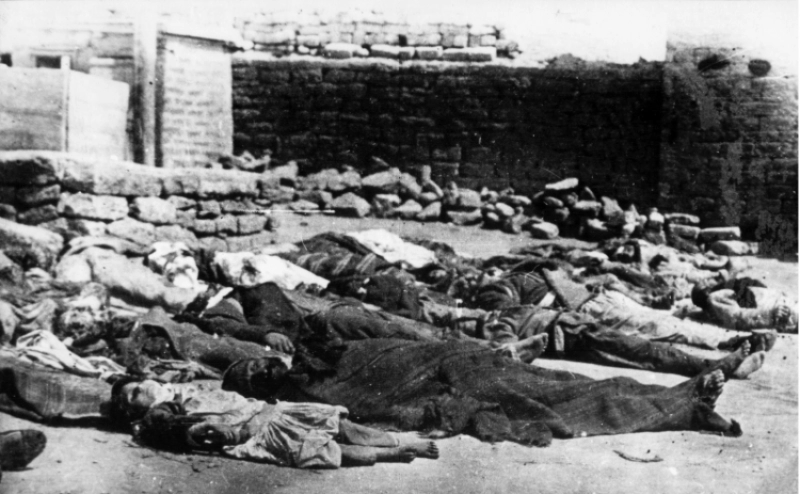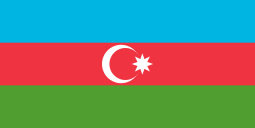
Azerbaijan Designates March 31 as Day of Genocide in Remembrance of 1918 Massacre
31 March 2023
The Azerbaijani Foreign Ministry has declared March 31 as the Day of Genocide of Azerbaijanis, in commemoration of the brutal massacre of tens of thousands of peaceful Azerbaijanis in 1918. The statement issued by the Ministry recalls how Dashnak-Bolshevik units acting under the Baku Council ruthlessly slaughtered civilians in various Azerbaijani regions, including Baku, Shamakha, Guba, Iravan, Zangezur, Karabakh, Nakhchivan, and Kara.
Guba alone witnessed the murder of more than 16,000 individuals and the destruction of 167 villages. The extraordinary commissioner of the Caucasus at the time, ethnic Armenian Stepan Shaumyan, admitted that 6,000 armed soldiers of the Baku Council and 4,000 soldiers of the "Dashnaksutun" Party were involved in the annihilation of Azerbaijanis.
The People's Republic of Azerbaijan later set up an extraordinary investigation commission (EIC) composed of jurists of different nationalities to investigate the crimes. The commission initiated criminal cases against 194 individuals accused of various crimes against civilians and arrested over 100 people. However, the Soviet army's occupation of Azerbaijan halted the process.
It was not until March 26, 1998, that the President of Azerbaijan issued a decree to give an adequate political assessment of the actions committed and declare March 31 as the Day of Genocide of the Azerbaijanis. The establishment of this day plays an important role in raising awareness of the ethnic cleansing committed by Armenians against Azerbaijanis.
The Azerbaijani Foreign Ministry's statement on the 105th anniversary of the March massacre calls on Armenia to end impunity and prevent the recurrence of such crimes. The statement also highlights that modern-day Armenia has pursued a policy of ethnic cleansing, genocide, and other crimes against Azerbaijanis based on ethnic hatred and intolerance, resulting in the massive expulsion of Azerbaijanis from Armenia and the occupied territories of Azerbaijan.
Guba alone witnessed the murder of more than 16,000 individuals and the destruction of 167 villages. The extraordinary commissioner of the Caucasus at the time, ethnic Armenian Stepan Shaumyan, admitted that 6,000 armed soldiers of the Baku Council and 4,000 soldiers of the "Dashnaksutun" Party were involved in the annihilation of Azerbaijanis.
The People's Republic of Azerbaijan later set up an extraordinary investigation commission (EIC) composed of jurists of different nationalities to investigate the crimes. The commission initiated criminal cases against 194 individuals accused of various crimes against civilians and arrested over 100 people. However, the Soviet army's occupation of Azerbaijan halted the process.
It was not until March 26, 1998, that the President of Azerbaijan issued a decree to give an adequate political assessment of the actions committed and declare March 31 as the Day of Genocide of the Azerbaijanis. The establishment of this day plays an important role in raising awareness of the ethnic cleansing committed by Armenians against Azerbaijanis.
The Azerbaijani Foreign Ministry's statement on the 105th anniversary of the March massacre calls on Armenia to end impunity and prevent the recurrence of such crimes. The statement also highlights that modern-day Armenia has pursued a policy of ethnic cleansing, genocide, and other crimes against Azerbaijanis based on ethnic hatred and intolerance, resulting in the massive expulsion of Azerbaijanis from Armenia and the occupied territories of Azerbaijan.












